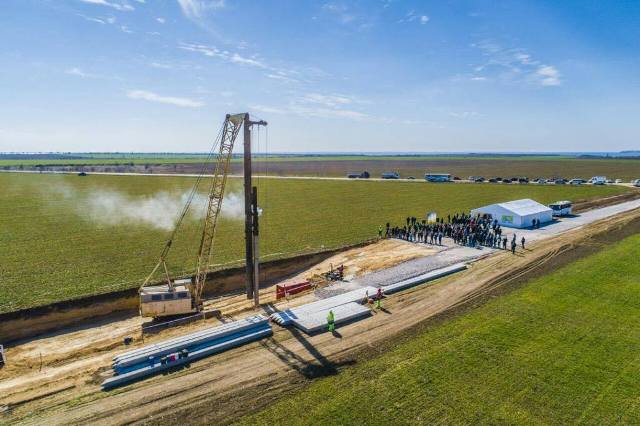Renewable energy developer SREW N.V. is taking Ukraine to an international arbitration tribunal to recover $79 million it claimed to have lost when Ukraine cut the tariffs it pays for green energy, according to a document on the Cabinet of Ministers’ website.
Many wind and solar investors were lured to Ukraine by the country's high fixed-in tariff for renewable electricity. But the country struggled to pay everyone and its debts soared. In July 2020, the Ukrainian government decided to cut the tariff to have an easier time paying outstanding debts.
Some renewable developers reluctantly agreed to take the cut in exchange for being repaid. Many others, like SREW N.V., weren't having it.
The company believes that Ukraine “unjustifiably and inconsistently destroyed the legislative regulation in the field of renewable energy” and trod on its rights in the process. SREW N.V. also alleged that Ukraine breached its international investment protection agreement with the Belgian-Luxembourg Economic Union.
SREW N.V. invested in the Dnipro-Bug Wind Station in Kherson Oblast. The site has a maximum capacity of 110 megawatts.
In 2008, Ukraine implemented a feed-in tariff, a guaranteed, euro-denominated price for renewable electricity. Feed-in tariffs were popular around the world to boost renewable investment.
The tariffs were some of the highest in Europe. Towards 2019, a surge of international and domestic companies rushed to invest in renewable projects in Ukraine. The country went from producing 2% of its electricity from wind and solar power at the start of 2019 to over 8% just a year later. According to Expo Consulting, the total investment in renewable energy in Ukraine was $9.6 as of July 2021.
However, the sharp increase, high tariff and the way the energy market was structured made Ukraine struggle to afford to pay everyone. Massive debts began to accrue.
In a deal drafted by the government in 2020, some renewable producers agreed to accept a 7.5% to 15% cut in the tariff if the government promised to pay back debts totaling $600 million.
According to energy expert Yuriy Kubrushko, as of the start of 2021, the government had paid back around $238 million (Hr 6.4 billion) through this agreement.
In 2021, the green tariff was changed once again to a “feed-in-premium” model due to large debts that continue to be accrued by Guaranteed Buyer, the state company responsible for paying for all renewable electricity.
Under this model, green energy producers are allowed to sell their electricity on the market. The government would then reward them with a premium — the difference between the market rate and the feed-in tariff amount.
Some international energy companies, however, said they would use international arbitration to compel the Ukrainian government to pay what it owes them at the pre-cut rate.
Lithuanian energy company Modus Energy International launched arbitration proceedings against Ukraine in April, seeking $13 million as a result of the 2020 tariff reduction.
On Nov. 12, Guaranteed Buyer approved the allocation of $738 million to pay off controversial debts to producers. The money was raised through placing Eurobonds.













